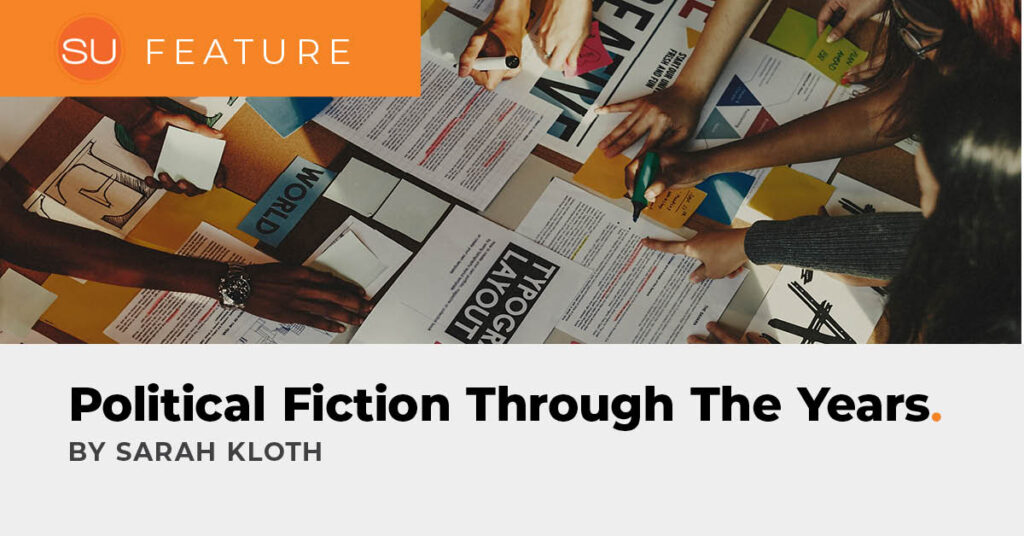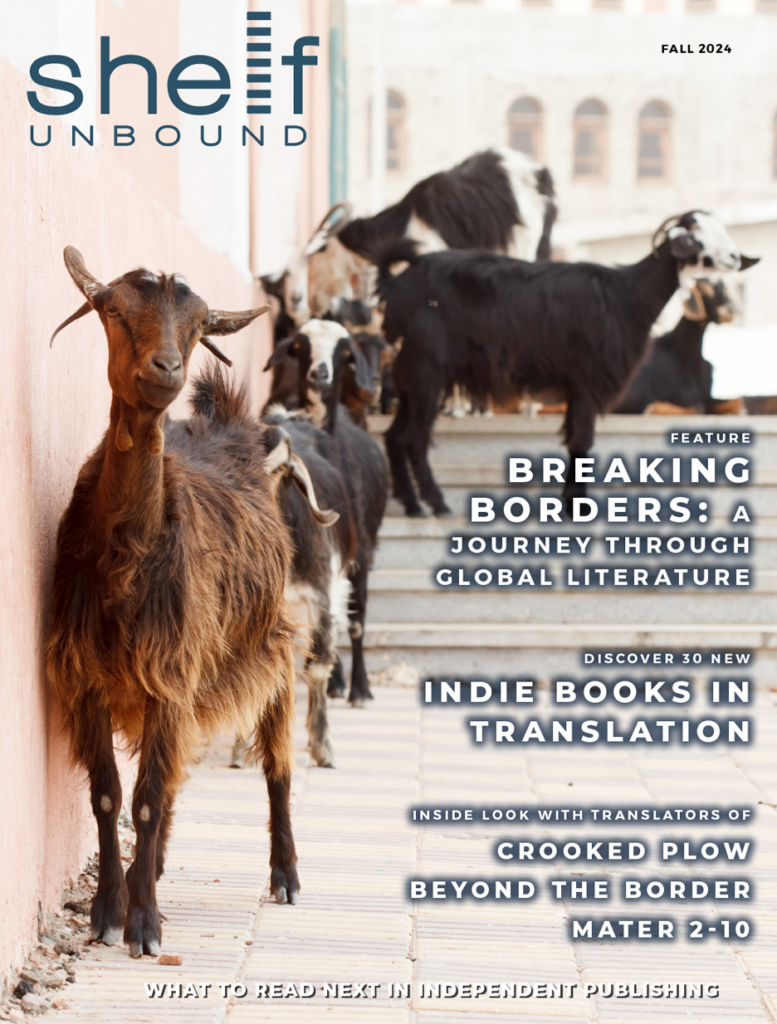By Sarah Kloth

Political fiction has been a powerful way to explore and critique how power works, how societies are organized, and how people resist unfair systems. From classic novels to modern-day stories, political fiction helps us understand the complex world of politics and human nature.
Early Political Fiction
Political fiction has deep roots, starting with early works that used storytelling to talk about politics. For example, Plato’s The Republic (around 380 BC) isn’t a novel, but it discusses ideas about justice and the perfect society. Later, Jonathan Swift’s Gulliver’s Travels (1726) used satire to poke fun at the politics and social issues of his time.
In the 19th century, novels began to tackle social and political issues more directly. Charles Dickens’s Hard Times (1854) criticized the harsh effects of industrial capitalism, while Harriet Beecher Stowe’s Uncle Tom’s Cabin (1852) played a big role in changing attitudes about slavery in America. These books show how political fiction can influence public opinion and drive social change.
The Rise of Dystopian Fiction
The 20th century brought new challenges and fears, which were reflected in political fiction. During this time, dystopian novels became very popular. George Orwell’s 1984 (1949) and Aldous Huxley’s Brave New World (1932) imagined futures where governments have extreme control over people’s lives. Orwell’s book shows a world where the government watches everyone all the time, while Huxley’s story is about a society obsessed with pleasure and technology. These novels reflect the worries of their time, including totalitarian regimes and the impact of technology.
Changing Times and Global Issues
After the Cold War, political fiction began to explore new themes as the world changed. Stories started to focus on global issues like migration, identity, and economic inequality. For instance, Salman Rushdie’s The Satanic Verses (1988) sparked discussions about religious extremism, while Chimamanda Ngozi Adichie’s Americanah (2013) looked at race and the immigrant experience.
As societies became more divided, political fiction began to address these divisions. Jonathan Franzen’s Freedom (2010) and Don DeLillo’s Underworld (1997) explore how media and consumer culture affect American life and politics. These novels show how personal and political issues are deeply connected and often cause tension.
Modern Political Fiction: New Voices and Issues
Today, political fiction continues to evolve, reflecting current issues like populism, climate change, and social justice. Authors from all over the world are using fiction to tackle these problems and offer new perspectives. For example, Arundhati Roy’s The Ministry of Utmost Happiness (2017) deals with political unrest in India, while Margaret Atwood’s The Testaments (2019) revisits her earlier book, The Handmaid’s Tale, to explore modern concerns about women’s rights and authoritarianism.
Modern political fiction also focuses on diverse experiences and identities. Ocean Vuong’s On Earth We’re Briefly Gorgeous (2019) and Colson Whitehead’s The Nickel Boys (2019) highlight issues of race, trauma, and systemic injustice. These stories help readers understand how personal experiences are connected to larger political and social issues.
Why Political Fiction Matters
Political fiction is more than just stories about politics; it’s a way to think deeply about how power works and how people fight against unfair systems. By reading political fiction, we can see the world through different lenses and better understand the forces shaping our lives.
These novels can also influence how we think about and engage with political issues. Whether they are set in dystopian futures or reflect real-world struggles, political fiction encourages us to question and reflect on our beliefs and the society we live in.
Conclusion
Political fiction has undergone considerable evolution over the years, adapting to reflect shifting social, cultural, and ideological landscapes. From early satirical works that poked fun at the political elite to contemporary stories that grapple with pressing global issues such as climate change, authoritarianism, and social justice, political fiction serves as a lens through which readers can examine the complexities of power, resistance, and human nature. These narratives often challenge the status quo, offering readers a chance to engage critically with the world around them and consider alternative viewpoints and possibilities.
As the world continues to face new challenges and transformations, political fiction will remain an essential genre for exploring and understanding the intricate dynamics at play. It not only offers commentary on current events but also helps us imagine future scenarios, pushing the boundaries of our thinking and encouraging dialogue about the directions our societies might take. In this way, political fiction will continue to provide readers with fresh perspectives and a deeper understanding of the ever-evolving political landscape.

